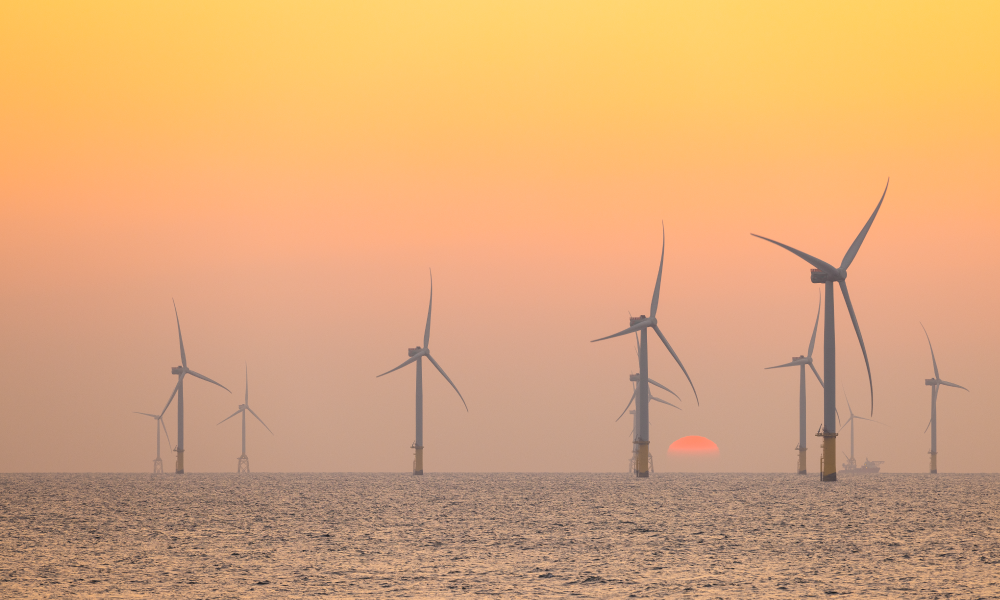
Large scale auctions for offshore wind sites, long-term decarbonisation auctions for energy storage capacity, and CfD scheme for hydrogen projects are facilitating the growth of various clean energy projects across Japan’s energy systems, and attracting healthy interest from domestic and international firms alike.
The win or lose nature of these schemes presents challenges for employers and employees alike. As a company seeking to win an auction, building up a skilled team with technical expertise and commercial know-how is necessary, however deciding which positions to prioritize, and what size of team to invest in can be challenging.
For employees, managing the risk of joining a firm that may or may not win a project is a tough choice. How can you ensure that the work you do adds value to your CV regardless of auction results?
Desire to work on winning projects
Naturally, offshore wind industry talent wants to work on projects that will be realized. In the three Round 2 offshore areas to be granted rights in December of 2023, nine firms across three consortiums were successful. One more offshore area will be decided by March of this year.
Over 20 firms will ultimately be unsuccessful with their Round 2 bids, and multiple other firms have worked for over a year to develop projects in preparation for their bids, only to decide against bidding for various economic and competitive reasons. The impact was quick in coming. Within two weeks of the results, about a dozen employees of a major Japanese developer that failed to secure their project have left the company.
One of the winners, however, announced over 30 newly opened positions in the same timeframe and are now interviewing dozens of professionals each week. Over 50% of professionals who submitted applications to one multinational developer prior to the auction result withdrew their interest within a week of that firm failing to secure a win in their offshore zone.

The high costs to develop projects, and all or nothing risk that comes with capital intensive segments such as offshore wind, reveal the risks that employees face. This can be demonstrated by large-scale downsizing and complete market exits for some multinational developers, as well as a large number of Round 1 bidders opting to sit out of Round 2 auctions.
With massive oversubscription of energy storage projects in Japan’s long-term decarbonisation auctions, the potential for a repeat of this pattern of talent drain to project winners is high. Notably, this trend was less pronounced in the solar boom a decade ago.
Under that FIT market scheme, developers were able to secure projects year round, leading to more consistent, albeit smaller wins that allowed businesses to maintain a team that matched their portfolio. The annual auction system creates a fair and level playing field and increases visibility for developers; however, the balance of building and retaining talent becomes more challenging.
Hiring enough to win while managing cost
Developing a team that’s capable of developing quality projects and submitting bids with a high chance of success is a serious investment. The challenge is that there’s nothing to pay for that investment until project wins are secured. So, how to build a strong team and keep costs down?
A few things to keep in mind:
- A team that lacks strong local capabilities will make finding and securing development partners more difficult;
- Due to the intense workload in the months leading up to bid submissions, the work-life balance and strain on a team that’s too lean can cause internal problems;
- On the other hand, the cost of salaries, social insurance, equipment and office space for 40, 50+ staff is hard to justify if the bid is unsuccessful and the next opportunity is another 12 months away.

Talent retention in a cutthroat market
As previously mentioned, strong talent wants to work on projects that will be developed and constructed. Losing talent to winners after a tender result is announced is a risk that’s impossible to eliminate. However, steps can be taken to mitigate this risk and keep top performers under your roof.
- Clear vision and long-term commitment. Talent is more likely to stay if there’s a clear roadmap and pipeline of projects in the next auction, or early stage projects not yet subject to auctions. Holding meetings on the firm’s future direction and not committing to the next auction is a sure way to get a stack of resignation letters on your desk.
- Get your team involved at a regional level. Multinational firms primarily hire bilingual talent. If yours has interest in other APAC markets, giving your team the chance to have input on projects outside Japan significantly increases your chances of retaining them in the case you fail to secure a project in the Japanese auction systems.
- Diversity of projects. Firms that have developed a range of asset types hold a different risk profile and can repurpose talent if a key auction-based project is unsuccessful.
Employees: How to secure your value regardless of company results?
This is one of the most common concerns we see for professionals moving to firms dealing with project materialization risk, irrespective of whether it’s in wind, energy storage, hydrogen or other areas. There is a oft-held view that if a firm fails to secure a project, then the experience and value of its team members falls behind. This would make it harder to secure employment.
At Titan, our view is that this risk is minimal, due to the fact that these markets are young and demand for talent is high, and that inherently there are more losers than winners in such auction systems.
Some points to consider when choosing a firm and selecting a role to ensure that you continue to build value regardless of company results:
- Wider roles are better. Since many segments of energy transition sectors are in their infancy, employers gravitate toward talent who can wear multiple hats. Having the ability and mindset to work broadly, and communicate across functions and languages, is a key asset.
- Take on roles that shift with the project. Energy projects are divided into phases – if you are able to stick with a project through origination, into development and then into execution, you’ll build more value than through sticking to origination repeatedly.
- Look at that firm’s commitment. If it’s strong for multiple projects over a long period of time, you’ll likely have workstreams in more than one project; hence, in case your main project dissolves, you’ll be able to pick up work in the next projects, rather than having ‘dead time’ while your next steps are decided.
- Target multiple small wins. For example, we see a trend of professionals in offtake / CPPA favoring solar or BESS over offshore wind for the reason that they can start racking up a track record of small wins, rather than leaving themselves open to the binary risk inherent in larger, more complex offshore projects.
Does job ‘hoppiness’ matter less?
One of the age old questions in Japan is how long a professional needs to remain with a firm in order not to be considered a ‘job hopper’. In the current market, this notion is changing from ‘time in role’ to ‘achievements in role.’
Andrew Statter is Partner and Head of Titan GreenTech, a Tokyo-based human capital and executive search firm with a focus on renewable energy and clean technology markets. Titan supports global companies with Japan market entry, as well as scale-up and key hiring.
This article originally appeared in a Japan NRG Weekly report. Japan NRG is a one-stop platform that delivers both intelligence and analysis on energy and electricity markets in Japan.
